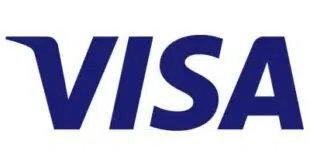The Federal Reserve will leave the current interchange cap on debit card transactions in place, the agency announced this week as part of its biennial review of the regulation formally known as Regulation II, but commonly called the Durbin Amendment.
The Fed’s controversial rule implementing the amendment in 2011 imposed a cap of 21 cents plus 0.05% (5 basis points) of the transaction, along with a 1-cent fraud adjustment, on debit cards from issuers with more than $10 billion in assets. It has not changed since.
The Fed examined debit issuers’ costs for authorizing, clearing, and settling transactions and found that these continue to decrease. The Fed’s survey included 129 issuers and 14 debit card networks.
Issuers subject to the Durbin Amendment’s pricing controls on debit card transactions experienced an overall average cost of 4.2 cents to authorize, clear, and settle these transactions in 2015, excluding fraud costs. That is half of the 9.4 cents the Fed calculated in 2011. The average was 4.6 cents in 2013.
The National Retail Federation, a stalwart interchange foe, cited the report as evidence the cap should be reduced.
“The purpose of the cap is to encourage competition, Mallory Duncan, senior vice president and general counsel, of the NRF, says in a statement. “As long as it’s so much higher than the banks’ actual costs, we’re never going to see true competition. If costs have come down, then the cap should come down as well. If that happens, we’ll eventually see banks break out of their cartel and begin to compete like other businesses do with innovative products and services.”
Consultant Eric Grover, principal of Minden, Nev.-based Intrepid Ventures, point out, however, that the Fed has to be mindful of the interests of smaller, regulated issuers competing with larger banks that might be better equipped to handle a reduced cap.
“The Fed has to worry about hurting banks and perhaps particularly to worry about disadvantaging smaller banks against the Goliaths, which a reduction in the debit-interchange price cap would do,” Grover says in an email to Digital Transactions News.
The report also looked at fraud-prevention costs, finding that the overall average for signature-debit transactions was 2.6 cents; for PIN debit, 1.9 cents.
Consultant Steve Mott of Stamford, Conn.-based BetterBuyDesign, says this result reinforces his view that signature debit is “fraud-prone, high-cost, low-profit, and otherwise not worthy of a place on this earth,” he says via email. “PIN is clearly much better, but issuers still get incented to stick with [signature] debit, ostensibly because the network brands [can’t] stand the thought of PIN catching on more and maybe migrating to credit cards.”
Similarly, the NRF would like PIN authorization as the standard for all card transactions. “The banks need to do away with fraud-prone signatures and make safe, secure PINs the standard on all transactions,” Duncan says.
In other findings:
· Interchange fees across all debit and general-use prepaid cards totaled $18.41 billion in 2015.
· The average interchange fee for debit transactions covered by Regulation II was 23 cents, which is unchanged since the rule’s implementation in 2011.
· For unregulated issuers, the average interchange fee for a signature-debit transaction was 51 cents. The average fee for a PIN-debit transaction was 26 cents in 2015, down from 32 cents in the fourth quarter of 2011.
· Fraud losses, across all debit and general-use prepaid card transactions was $2.41 billion in 2015, a 53% increase from $1.57 billion in 2013.
· Networks processed 60.6 billion debit and general-use prepaid card transactions in 2015 valued at $2.31 trillion. Signature-debit transactions accounted for 65.5% of the transaction volume and 64.6% of the value.
· The average transaction value of a card-not-present debit transaction was $70.76, twice the average for card-present transactions.





